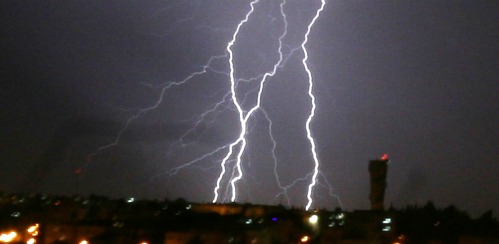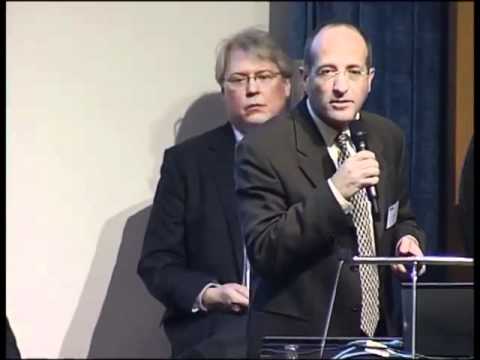A fault current limiter designed in Israel is helping large utility companies avert widespread power breakdowns.

Blackouts across Europe and North America threaten to become more common as people’s power needs increase. High energy demands mixed with thunderstorms, solar storms, and the addition of renewables like solar and wind energy to the grid, creates an unpredictable mix of power variables infrastructure companies never had to deal with before.
The Israeli company GridON may have a solution that a UK power company is now trying out. Its device, the Keeper, is a three-phase fault current limiter based on intellectual property from Bar-Ilan University.
About the size of a heavy-duty fridge, the device instantaneously blocks current surges, and limits the current for as long as required to clear the fault. It recovers immediately thereafter, protecting against multiple faults occurring in quick succession.
Costing between $500,000 to $3.5 million, depending on voltage, the Keeper promises to avert a potential power breakdown.
Lauded by GE
According to the company CEO Yoram Valent, GridON is already negotiating with major utilities companies around the world. In 2010, the five-person company based in Givatayim received an Innovation Award from General Electric’s Ecomagination Challenge.
Valent, co-founder of the company with Roy Iscovitsch and Matty Vengerik, tells ISRAEL21c: “When there is a short circuit on a high-voltage network, it can be a major catastrophe. This impacts the quality of service, destroys equipment, creates blackouts like in the East Coast in the US [in 2003], and costs billions to the economy.”
The Keeper, in development over the last eight years at the university and since 2009 in the company, “always guarantees if there is a short circuit that it will lift the current under the allowed rating. The main position is in the substation in a grid or in connection points of generators or generator stations – traditional or renewable energy ones,” says Valent.
Potential customers include any major power generator company, utilities and even factories that need a constant supply of power, he says, predicting in the next five years his company could sell multiple dozens of Keepers to a typical utility company. “The business plan calls for high-end sales of maybe hundreds, 200 or 300, to an average utility across several years.”
A good fit for Europe
In Israel, the grid carries about 11 gigawatts of power over a condensed and small area, so the company projects its technology is better suited to countries in Europe, where solutions have been elusive.
This July, GridOn was chosen by the Energy Technologies Institute to test the Keeper on a large UK power network in Newhaven, East Sussex.
“There were a lot of activities in the past decade that didn’t result in commercial solutions,” says Valent. The proposed systems weren’t practical or economical since the companies tried using futuristic superconductive material, he relates. Utilities companies were afraid of banking on superconductors because the material tends to be unstable.
Instead, GridOn uses standard materials, such as copper. “We took the same innovation from the superconductive world and made it even more futuristic,” Valent says. “We show utilities something that works — no frightening new technology.”
According to the company, the Keeper not only provides grid reliability, but also safety and efficiency while extending life of existing infrastructure.
The manufacturing process is outsourced, while Wilson Transformer Company in Australia is a strategic partner and investor.













